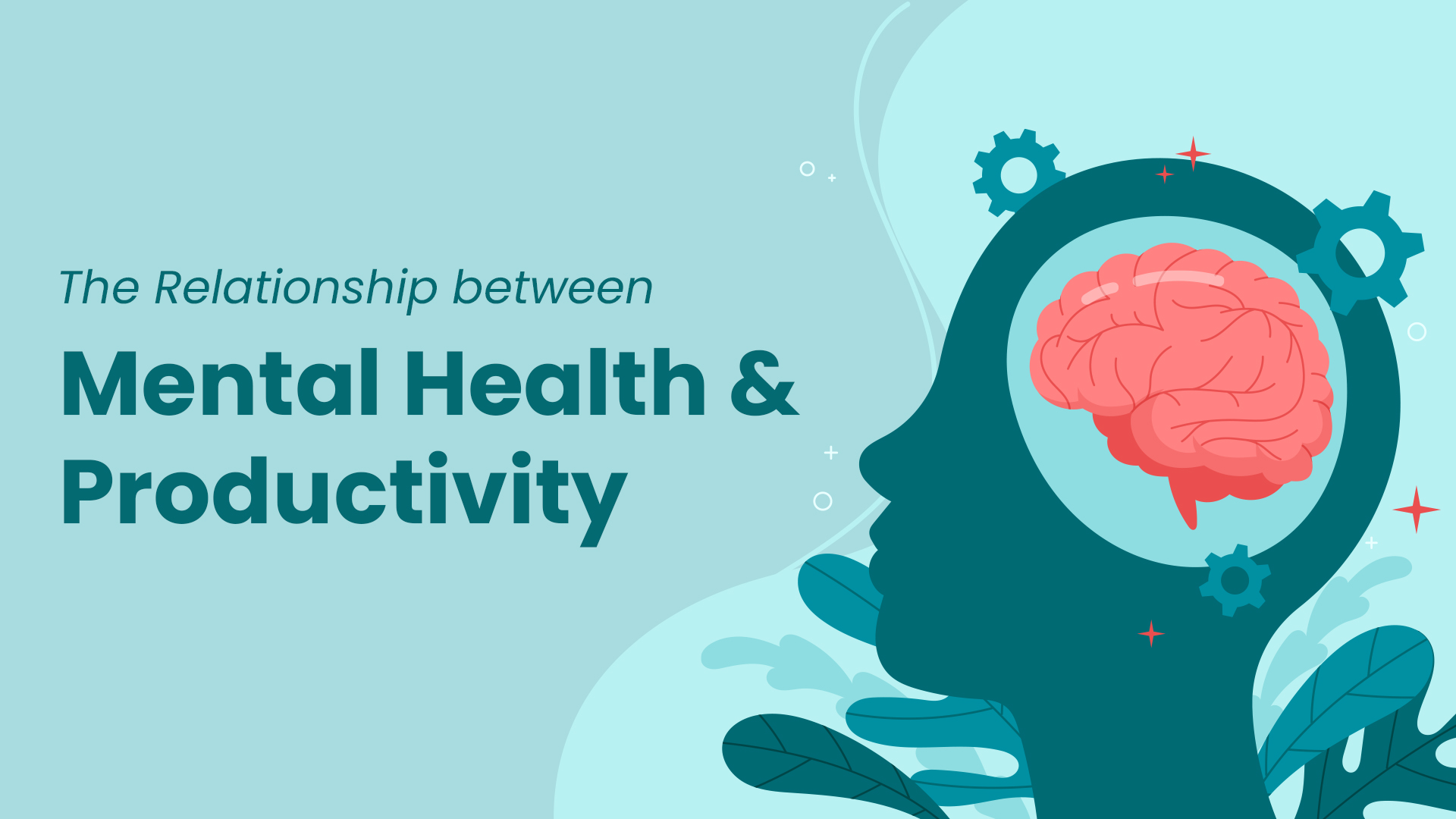
Most companies today have realised that the success of any business endeavour lies in the hands of their employees. This has naturally led to a number of people-focused initiatives, from improving company culture and offering special benefits to designing employee-friendly policies and workplaces. While initiatives like these do benefit employees and yield better results for organisations, they often fail to account for what impacts employee performance and productivity most: mental health.
The effects of mental health on workplace productivity are dire. So much so that they’re causing a financial drain on companies and economies. In fact, the WHO estimates that depression and anxiety cost the global economy US$ 1 trillion each year predominantly from reduced productivity.
What causes poor mental health at work?
Mental health indicates a person’s social, psychological, and emotional state. As an integral part of overall wellness, mental wellbeing affects every aspect of a person’s life—and workplace performance is no exception. So it’s no surprise that when an employee’s mental health is compromised, their performance, decision-making abilities, and ability to focus may be far from ideal.
A plethora of work-related factors can cause employees’ mental health to decline. Here are a few:
Work culture and environment: Work cultures that promote long hours and heavy workloads may see short-term but unsustainable improvements in productivity. Eventually, such work environments cause anxiety, stress, and burnout. Workplaces where employees feel harassed or face discrimination are toxic, severely impacting mental wellness.
Work-life imbalance: Are your employees struggling to balance responsibilities at work with their personal life and commitments? If so, they’re probably feeling overwhelmed, exhausted, and unable to put in their best at work. Their mental wellness issues are often compounded because of fears that poor performance might put their jobs at risk.
Job security: If your organisation is undergoing a period of instability, concerns about layoffs, job stability, or changes in organisational structure may make employees anxious and affect their mental health.
Lack of autonomy and support: Receiving inadequate support from managers can trigger feelings of isolation. Moreover, managers who practice micromanagement can make their teams feel anxious, powerless, and undervalued, sapping their motivation and taking a heavy toll on mental wellness.
The effects of poor mental health on productivity
An employee’s mental health may be poor because of personal or work-related factors or a combination of the two. Whatever the cause, the negative impacts of poor mental health on productivity are undeniable.
A Deloitte study shows that 37% of employees with poor mental health find it difficult to concentrate at work, while 25% delay challenging work.
Productivity is directly impacted by two common coping mechanisms employees use to manage their mental health in the workplace: absenteeism and presenteeism.
Absenteeism: Research indicates that 29% of employees in India take leaves of absence to deal with workplace-related stressors. This impacts team performance, delays projects and important deadlines, and hampers organisational growth.
Presenteeism: Employees dealing with poor mental health may still show up for work regularly. But their compromised mental wellness can lead to reduced effectiveness and difficulty focusing and making decisions. This can make them prone to making errors, which can have serious consequences for their teams and the organisation itself.
How organisations can support employee mental health
Your organisation may not be able to do much about the personal factors that impact employees’ mental wellbeing. That said, you can certainly create a work environment, support systems, and company culture that prevent, alleviate, and support work-related mental health issues among your employees.
Here are a few approaches to consider:
Build an open, safe, and supportive culture: Achieving a complete culture shift is no easy feat. However, even small incremental changes can, when sensitively handled, result in truly transformational results for both businesses and employees. Leaders can help set the tone by speaking out about their own challenges and issues. This lessens the stigma associated with mental health, making employees feel comfortable to discuss their mental health concerns and seek support without fear of judgment.
Offer a holistic mix of benefits: Help your employees cope better with stress and other issues by looking beyond conventional benefits like health insurance. Incorporating mental-health-focused employee initiatives, such as counselling, mental health resources, and support groups can go a long way towards increasing loyalty and motivation. Increases in productivity are sure to follow.
Flexibility: With the ever-increasing demands on working individuals today, maintaining a healthy balance between work responsibilities and personal commitments is a challenge for most employees. Many organisations are realising that enforcing rigid work hours and demanding physical presence in the workplace can have detrimental effects on employees’ mental health and work satisfaction. Introducing flexible work hours and options for full or partial remote work can make for happier, more productive employees.
Unsure where to start?
If you’re wondering how to go about championing employee mental health and boosting productivity levels, consider seeking expert help. MARG’s wellness programmes are specifically designed to help organisations manage this crucial aspect of the employee experience. With our consulting, training, counselling, and assistance in creating wellness-friendly policies and benefits, we can help you truly understand and anticipate your employees’ needs and build a culture that nurtures mental wellness.
Interested in knowing more? Contact MARG’s Wellness Advisors for more information on how we can help you elevate the well-being of your workforce.






